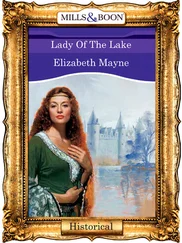Walter Scott - Lady of the Lake
Здесь есть возможность читать онлайн «Walter Scott - Lady of the Lake» весь текст электронной книги совершенно бесплатно (целиком полную версию без сокращений). В некоторых случаях можно слушать аудио, скачать через торрент в формате fb2 и присутствует краткое содержание. Жанр: Поэзия, на английском языке. Описание произведения, (предисловие) а так же отзывы посетителей доступны на портале библиотеки ЛибКат.
- Название:Lady of the Lake
- Автор:
- Жанр:
- Год:неизвестен
- ISBN:нет данных
- Рейтинг книги:4 / 5. Голосов: 1
-
Избранное:Добавить в избранное
- Отзывы:
-
Ваша оценка:
- 80
- 1
- 2
- 3
- 4
- 5
Lady of the Lake: краткое содержание, описание и аннотация
Предлагаем к чтению аннотацию, описание, краткое содержание или предисловие (зависит от того, что написал сам автор книги «Lady of the Lake»). Если вы не нашли необходимую информацию о книге — напишите в комментариях, мы постараемся отыскать её.
Lady of the Lake — читать онлайн бесплатно полную книгу (весь текст) целиком
Ниже представлен текст книги, разбитый по страницам. Система сохранения места последней прочитанной страницы, позволяет с удобством читать онлайн бесплатно книгу «Lady of the Lake», без необходимости каждый раз заново искать на чём Вы остановились. Поставьте закладку, и сможете в любой момент перейти на страницу, на которой закончили чтение.
Интервал:
Закладка:
III. THE LADY OF THE LAKE
1. HISTORICAL SETTING
The Lady of the Lake deals with a distinct epoch in the life of King James V of Scotland, and has lying back of it a considerable amount of historical fact, an understanding of which will help in the appreciation of the poem. During his minority the King was under the tutelage of Archibald Douglas, sixth Earl of Angus, who had married the King's mother. The young monarch chafed for a long time under this authority, but the Douglases were so powerful that he was unable to shake it off, in spite of several desperate attempts on the part of his sympathizers to rescue him. In 1528 the King, then sixteen years of age, escaped from his own castle of Falkland to Stirling Castle. The governor of Stirling, an enemy of the Douglas family, received him joyfully. There soon gathered about his standard a sufficient number of powerful peers to enable him to depose the Earl of Angus from the regency and to banish him and all his family to England. The Douglas who figures in the poem is an imaginary uncle of the banished regent, and himself under the ban, compelled to hide away in the shelter provided for him by Roderick Dhu on the lonely island in Loch Katrine. He is represented as having been loved and trusted by King James during the boyhood of the latter, before the enmity sprang up between the house of Angus and the throne. This enmity, to quote from the History of the House of Douglas , published at Edinburgh in 1743, "was so inveterate, that numerous as their allies were, their nearest friends, even in the most remote parts of Scotland, durst not entertain them, unless under the strictest and closest disguise."
The outlawed border chieftain, Roderick Dhu, who gives shelter to the persecuted Douglas, is a fictitious character, but one entirely typical of the time and place. The expedition undertaken by the young King against the Border clans, under the guise of a hunting party, is in part, at least, historic. Pitscottie's History says: "In 1529 James V made a convention at Edinburgh for the purpose of considering the best mode of quelling the Border robbers, who, during the license of his minority and the troubles which followed, had committed many exorbitances. Accordingly, he assembled a flying army of ten thousand men, consisting of his principal nobility and their followers, who were directed to bring their hawks and dogs with them, that the monarch might refresh himself with sport during the intervals of military execution. With this array he swept through Ettrick forest, where he hanged over the gate of his own castle Piers Cockburn of Henderland, who had prepared, according to tradition, a feast for his reception."
2. GENERAL CRITICISM AND ANALYSIS
The Lady of the Lake appeared in 1810. Two years before, Marmion had vastly increased the popular enthusiasm aroused by The Lay of the Last Minstrel , and the success of his second long poem had so exhilarated Scott that, as he says, he "felt equal to anything and everything." To one of his kinswomen, who urged him not to jeopardize his fame by another effort in the same kind, he gaily quoted the words of Montrose:
He either fears his fate too much Or his deserts are small, Who dares not put it to the touch, To win or lose it all.
The result justified his confidence; for not only was The Lady of the Lake as successful as its predecessors, but it remains the most sterling of Scott's poems. The somewhat cheap supernaturalism of the Lay appears in it only for a moment; both the story and the characters are of a less theatrical type than in Marmion ; and it has a glow, animation, and onset, which was denied to the later poems, Rokeby and The Lord of the Isles .
The following outline abridged from the excellent one given by Francis Jeffrey in the Edinburgh Review for August, 1810, will be useful as a basis for criticism of the matter and style of the poem.
"The first canto begins with a description of a staghunt in the Highlands of Perthshire. As the chase lengthens, the sportsmen drop off; till at last the foremost horseman is left alone; and his horse, overcome with fatigue, stumbles and dies. The adventurer, climbing up a craggy eminence, discovers Loch Katrine spread out in evening glory before him. The huntsman winds his horn; and sees, to his infinite surprise, a little skiff, guided by a lovely woman, glide from beneath the trees that overhang the water, and approach the shore at his feet. Upon the stranger's approach, she pushes the shallop from the shore in alarm. After a short parley, however, she carries him to a woody island, where she leads him into a sort of silvan mansion, rudely constructed, and hung round with trophies of war and the chase. An elderly lady is introduced at supper; and the stranger, after disclosing himself to be 'James Fitz-James, the knight of Snowdoun,' tries in vain to discover the name and history of the ladies.
"The second canto opens with a picture of the aged harper, Allan-bane, sitting on the island beach with the damsel, watching the skiff which carries the stranger back to land. A conversation ensues, from which the reader gathers that the lady is a daughter of the Douglas, who, being exiled by royal displeasure from court, had accepted this asylum from Sir Roderick Dhu, a Highland chieftain long outlawed for deeds of blood; that this dark chief is in love with his fair protégée , but that her affections are engaged to Malcolm Graeme, a younger and more amiable mountaineer. The sound of distant music is heard on the lake; and the barges of Sir Roderick are discovered, proceeding in triumph to the island. Ellen, hearing her father's horn at that instant on the opposite shore, flies to meet him and Malcolm Graeme, who is received with cold and stately civility by the lord of the isle. Sir Roderick informs the Douglas that his retreat has been discovered, and that the King (James V), under pretence of hunting, has assembled a large force in the neighborhood. He then proposes impetuously that they should unite their fortunes by his marriage with Ellen, and rouse the whole Western Highlands. The Douglas, intimating that his daughter has repugnances which she cannot overcome, declares that he will retire to a cave in the neighboring mountains until the issue of the King's threat is seen. The heart of Roderick is wrung with agony at this rejection; and when Malcolm advances to Ellen, he pushes him violently back—and a scuffle ensues, which is with difficulty appeased by the giant arm of Douglas. Malcolm then withdraws in proud resentment, plunges into the water, and swims over by moonlight to the mainland.
"The third canto opens with an account of the ceremonies employed in summoning the clan. This is accomplished by the consecration of a small wooden cross, which, with its points scorched and dipped in blood, is carried with incredible celerity through the whole territory of the chieftain. The eager fidelity with which this fatal signal is carried on, is represented with great spirit. A youth starts from the side of his father's coffin, to bear it forward, and, having run his stage, delivers it to a young bridegroom returning from church, who instantly binds his plaid around him, and rushes onward. In the meantime Douglas and his daughter have taken refuge in the mountain cave; and Sir Roderick, passing near their retreat on his way to the muster, hears Ellen's voice singing her evening hymn to the Virgin. He does not obtrude on her devotions, but hurries to the place of rendezvous.
"The fourth canto begins with some ceremonies by a wild hermit of the clan, to ascertain the issue of the impending war; and this oracle is obtained—that the party shall prevail which first sheds the blood of its adversary. The scene then shifts to the retreat of the Douglas, where the minstrel is trying to soothe Ellen in her alarm at the disappearance of her father by singing a fairy ballad to her. As the song ends, the knight of Snowdoun suddenly appears before her, declares his love, and urges her to put herself under his protection. Ellen throws herself on his generosity, confesses her attachment to Graeme, and prevails on him to seek his own safety by a speedy retreat from the territory of Roderick Dhu. Before he goes, the stranger presents her with a ring, which he says he has received from King James, with a promise to grant any boon asked by the person producing it. As he retreats, his suspicions are excited by the conduct of his guide, and confirmed by the warnings of a mad woman whom they encounter. His false guide discharges an arrow at him, which kills the maniac. The knight slays the murderer; and learning from the expiring victim that her brain had been turned by the cruelty of Sir Roderick Dhu, he vows vengeance. When chilled with the midnight cold and exhausted with fatigue, he suddenly comes upon a chief reposing by a lonely watch-fire; and being challenged in the name of Roderick Dhu, boldly avows himself his enemy. The clansman, however, disdains to take advantage of a worn-out wanderer; and pledges him safe escort out of Sir Roderick's territory, when he must answer his defiance with his sword. The stranger accepts these chivalrous terms; and the warriors sup and sleep together. This ends the fourth canto.
Читать дальшеИнтервал:
Закладка:
Похожие книги на «Lady of the Lake»
Представляем Вашему вниманию похожие книги на «Lady of the Lake» списком для выбора. Мы отобрали схожую по названию и смыслу литературу в надежде предоставить читателям больше вариантов отыскать новые, интересные, ещё непрочитанные произведения.
Обсуждение, отзывы о книге «Lady of the Lake» и просто собственные мнения читателей. Оставьте ваши комментарии, напишите, что Вы думаете о произведении, его смысле или главных героях. Укажите что конкретно понравилось, а что нет, и почему Вы так считаете.








